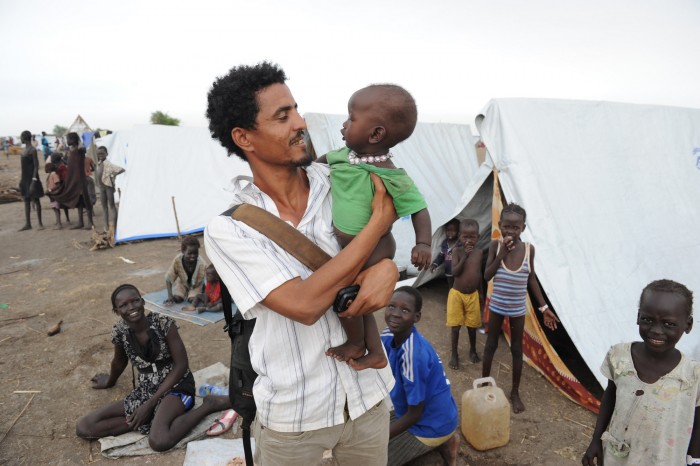Humanitarian advocacy
1. We will use our influence to promote stability, community reconciliation and social cohesion. We will amplify voices that promote human rights and international humanitarian law and speak out against injustice.
Actions required:
- Do No Harm and conflict analysis obligatory for all ACT humanitarian interventions. Separate section in Appeal format
- Mainstream ACT’s advocacy strategy in all members’ advocacy work, strongly focusing on human rights and IHL, while addressing root causes of conflicts.
- Mainstream participation in all of ACT’s humanitarian interventions.
- Mainstream complaint mechanisms in the humanitarian mechanism.
- Include explicit reference to the role of and needs in host communities where ACT humanitarian interventions take place.
- ACT members to develop a strategy and mechanism to collectively speak out with and for our partners and communities within 48 hours of a rapid onset emergency. In doing so, we will promote community resilience and cash-based response, accountability and the role of faith-based frontline responders
Humanitarian principles
2. We will highlight the role of faith-based responders in access to communities in need – and reinforce respect for the humanitarian principles. We will engage Southern members in awareness raising and capacity building on the practical application of the humanitarian principles and ensure their integration into ACT humanitarian responses
Actions required:
- Integrate a stronger reflection on humanitarian principles in ACT appeal planning and reporting.
- Improve relevant training material.
- Create an exchange community online to offer discussion and reflection on specific issues.
- An opinion paper on faith-based organizations and humanitarian principles
Cash Transfer Programming (CtP)
3. We will substantially increase the proportion of our humanitarian investment that goes to cash transfer programming. Before providing in-kind inputs, we will ask ourselves whether cash would work in this context. We will share learning across the ACT network on best practice in cash approaches, & increase capacity-building on cash for Southern members.
Actions required:
- Develop a 2016 ACT Appeals baseline (how much of our humanitarian work is CtP) to enable us to measure CtP increase in annual reporting
- Include a section in ACT Appeal format justifying if CtP has not been chosen as the primary modality
- One annual ACT publication on cash.
- ACT website and FB feeds reflect regular updates on CtP
- 90% of all relevant ACT Forums carry out at least one annual learning event on CtP
Reform of ACT mechanisms
4. By May 2018, we will reform the ACT Alliance humanitarian response mechanisms in line with the Agenda for Humanity, including strengthening local capacities by reforming the Rapid Response Fund so that it is exclusively for Southern members and it incentivizes investment in preparedness, risk reduction and resilience. We will streamline and harmonise requirements for partners, in line with the Grand Bargain. This includes a commitment to not ask more from Southern members than donors ask of funding members.
Actions required:
- Only national/local actors are eligible for rapid response funds within the new RRF policy.
- The policy indicates that Forums/members with up to date EPRPs are eligible for additional funding and projects can have longer lifespans.
- Both the new RRF template and process/protocol will be simplified to be more accessible to local/national and less time-consuming.
- Forums/members will receive training on RRF to ensure a higher quality of programming.
- The humanitarian response mechanism is currently under a revision process; one of the principal objectives is to develop standard tools which help partners to achieve transparency while reducing their workload with regards to reporting and compliance documents
Localisation
5. By May 2018, we will significantly increase the proportion of ACT Alliance members’ humanitarian funding that goes directly to Southern members and their partners for response and preparedness. We will transparently report on this amount as ACT Alliance, and encourage individual members to do the same. We will support initiatives that provide better access to resources for local and national frontline responders.
Actions required:
- Encourage more ACT Northern and Southern members to sign/endorse Charter for Change. Disseminate information about C4C in the ACT monthly newsletter.
- Encourage more ACT members to engage with Local2Global Protection’s new Supporting Locally-Led Responses to Crises (SLR) initiative
- Investigate how the ACT Secretariat system can best track funding flows and categories of local actors
- Investigate ways in which ACT Appeal evaluations can include evidence building on role of local actors
Principles of Partnership
6. We will demonstrate, learn from and identify best practice in local-national-international partnerships, in line with the Principles of Partnership. We will encourage direct partnerships between Southern members through national & regional ACT Forums, encouraging complementarity & equality.
Actions required:
- Ensure that revised humanitarian guidelines serve the need of ACT members on the ground.
- Proactively reach out to ACT in-country forums while preparing ACT global advocacy messages. Better mapping of who is doing what, with what capacity.
- Through the community of practice and advisory groups, proactively gather key lessons for global advocacy and for mutual learning by the membership.
Community resilience
7. We will increase the proportion of our humanitarian investment that goes to preparedness, prevention and resilience, with a target that over 10% of ACT Alliance programming should be invested in preparedness and risk reduction. We will use the extraordinary reach of our network of faith-based and church-based organizations to raise DRR awareness at grassroots level, including in hard-to-reach locations, by influencing local leadership and educating community members, including through the deployment of church volunteers, delivering over 30 examples of grassroots-level DRR awareness-raising activities by May 2018.
Actions required:
- Include a question on DRR/preparedness spend in the next ‘Mapping ACT’ survey in 2017.
- Factor this WHS commitment into the emerging new appeals guidance, asking Forums to bear in mind our ambition to include DRR/preparedness interventions in appeals, particularly in the later stages.
- Commission a review of ACT appeal spend in 2014 and 2015 to establish a baseline for DRR/preparedness funding
- Gather best practice inputs in run-up to the next ISDR Global Platform in May 2017 (including the ACT Award).
- Participate in regional preparatory events for the Global Platform
- Coordinate an energetic ACT presence at the Global Platform
- Develop positioning demonstrating ACT’s work in this area to publicise at the Global Platform
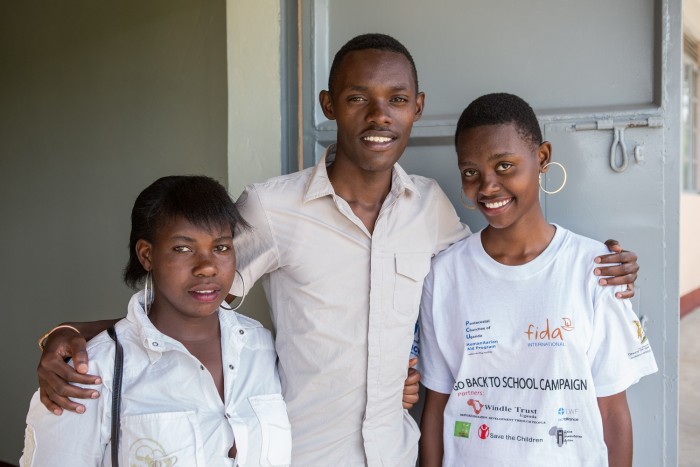
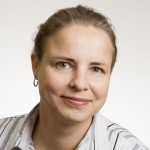 Eija Alajarva is Head of Humanitarian Assistance at
Eija Alajarva is Head of Humanitarian Assistance at 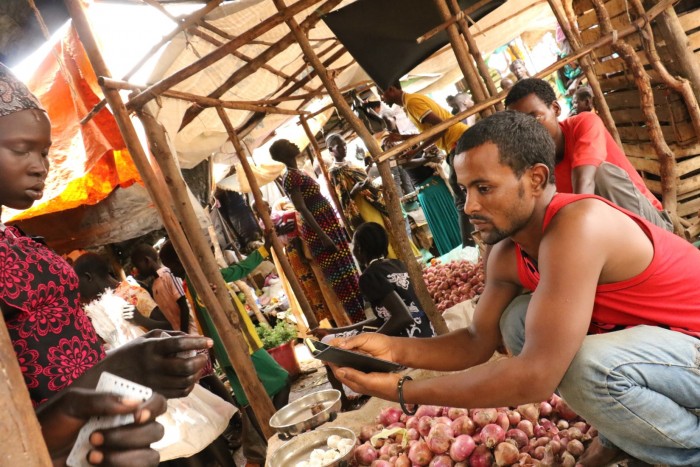
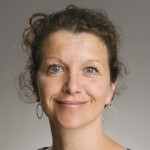
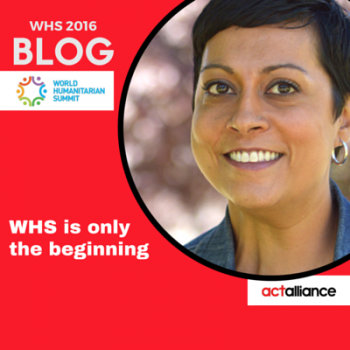
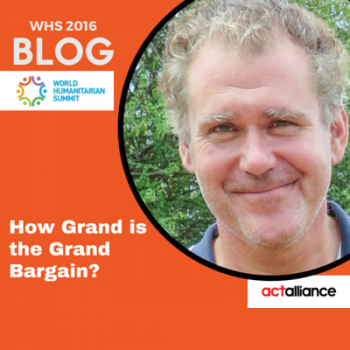
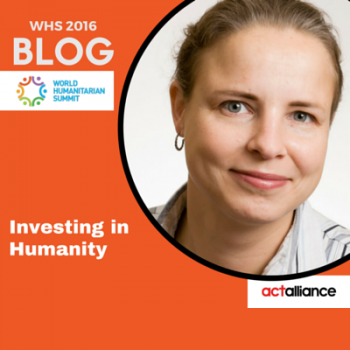
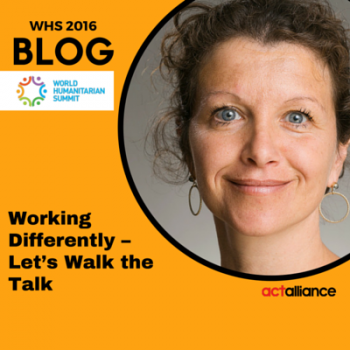
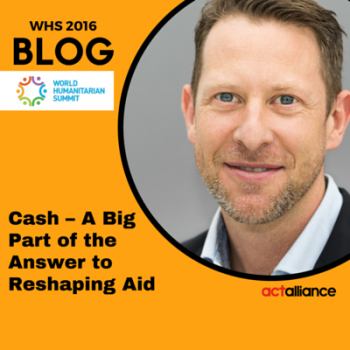
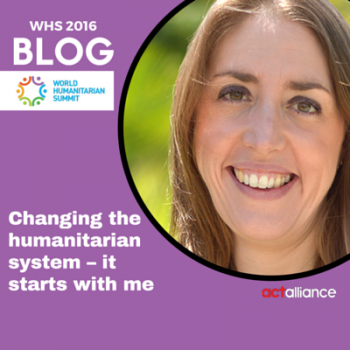
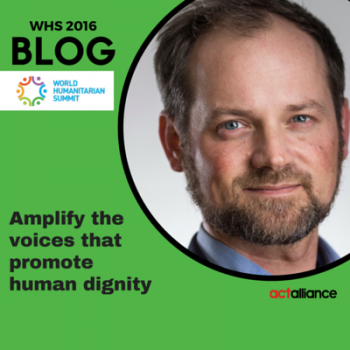
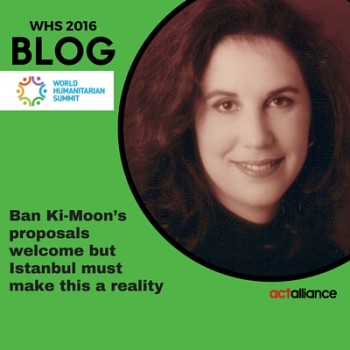
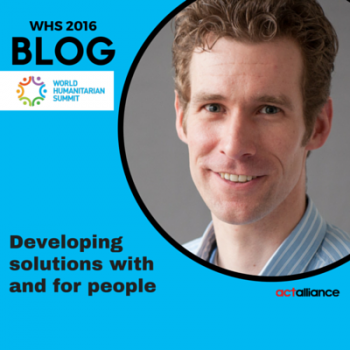
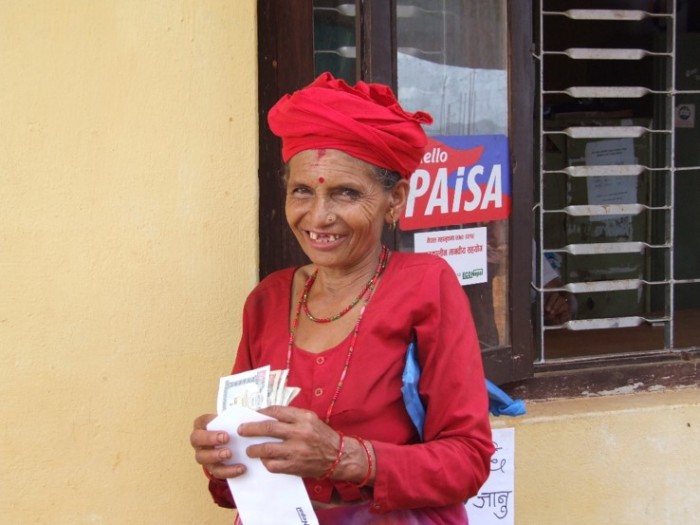
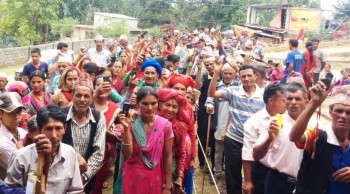

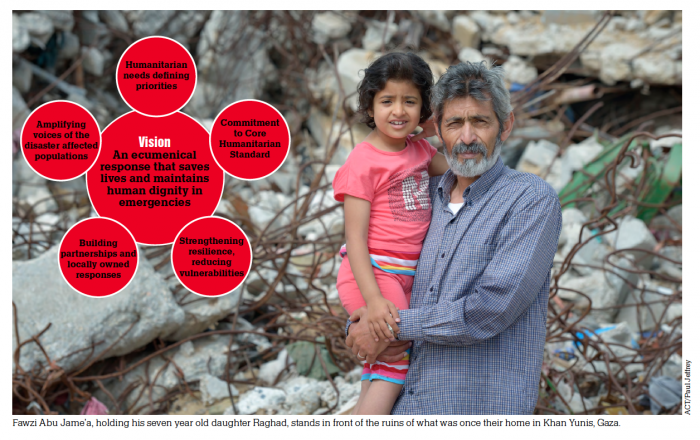
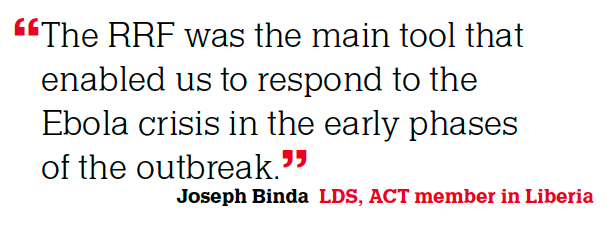 ACT Alliance has the privileged position of being a network of local, national and international actors committed to partnerships amongst each other. This commitment enables international and global members of ACT to enhance the capacity of local and national actors, allowing for first phase response in the beginning of a crises or disaster to come directly from the community itself.
ACT Alliance has the privileged position of being a network of local, national and international actors committed to partnerships amongst each other. This commitment enables international and global members of ACT to enhance the capacity of local and national actors, allowing for first phase response in the beginning of a crises or disaster to come directly from the community itself.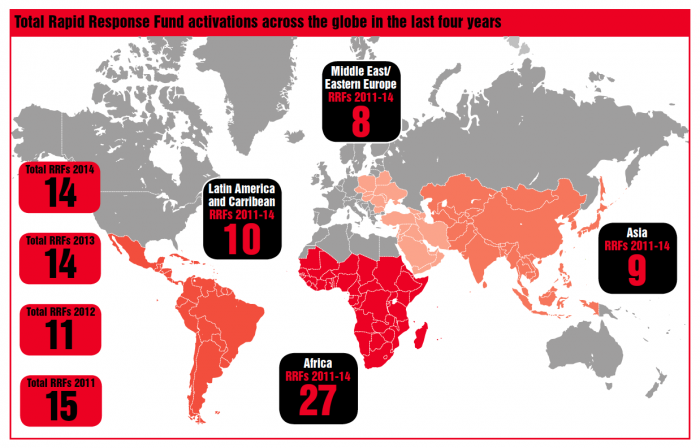
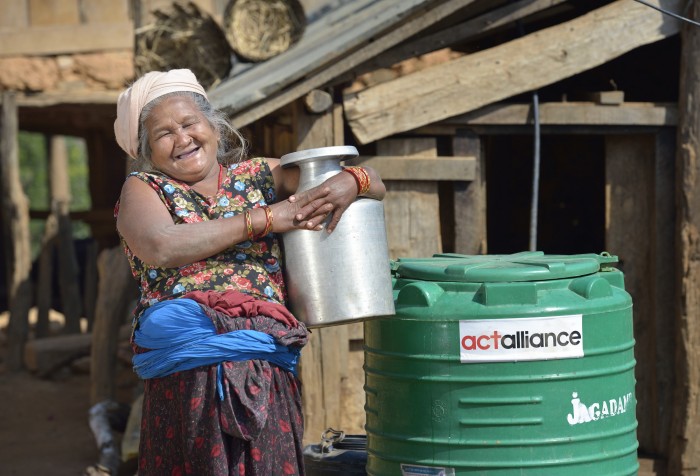
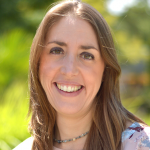 Sarah Kambarami is Head of Programmes at ACT Alliance in Geneva and has worked in the humanitarian and international development sector for more than 15 years. Prior to working with ACT Alliance, Sarah worked for World Vision International, gaining significant experience in Angola before supporting work in the Middle East, Eastern Europe and Asia as Regional Manager at World Vision UK. In recent years, Sarah has developed an increasing focus on quality, accountability and learning and has previously worked as an Associate Lecturer for the Open University in the Institutional Development module of the Development Management Programme.
Sarah Kambarami is Head of Programmes at ACT Alliance in Geneva and has worked in the humanitarian and international development sector for more than 15 years. Prior to working with ACT Alliance, Sarah worked for World Vision International, gaining significant experience in Angola before supporting work in the Middle East, Eastern Europe and Asia as Regional Manager at World Vision UK. In recent years, Sarah has developed an increasing focus on quality, accountability and learning and has previously worked as an Associate Lecturer for the Open University in the Institutional Development module of the Development Management Programme.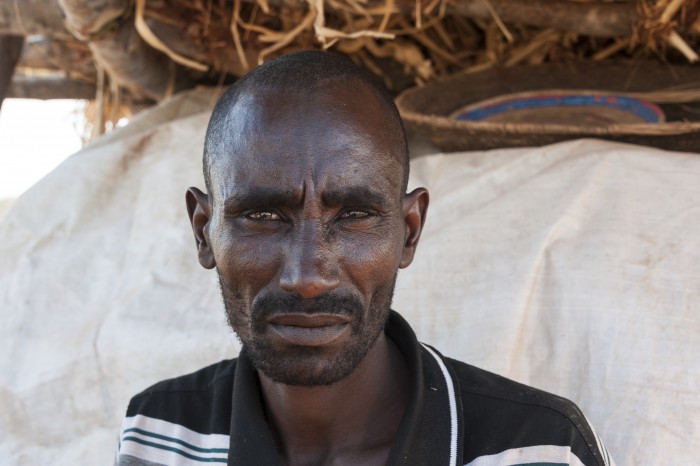
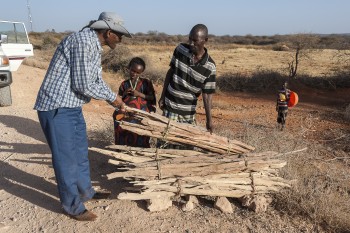 Selling wood and working as a carrier
Selling wood and working as a carrier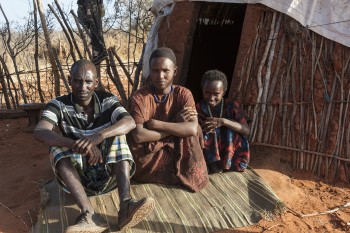 Hoping to get food aid from the government
Hoping to get food aid from the government